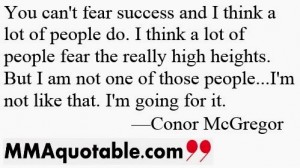
Conor McGregor advises you to be at peace with who you really are. Even (especially) if that involves red skull and crossbone suit linings.
I have a week left in my writing retreat. I’ve already accomplished more than I thought I would. And I finally feel like I have writing advice to share, after only twenty-three years of working on becoming a professional writer.
Be confident in your own process. I have no set pattern. Sometimes I write in the morning, sometimes at night. Sometimes I don’t write at all, sometimes I write all day. The days I’m not writing are the most important days of all, because those are the days I dig for the story. I’ve learned to trust my instincts. As a pantser, I write everything I know to write. By that I mean, I transcribe the movie I’m watching in my mind. The second the reel falters, the movie flicks off, I stop writing. I resist the temptation to write based off of guesses. I now know what the movie feels like, and I only start writing again once the film is truly ready to roll. I used to push for word counts and things of that nature, but for me, artificial goals are deleterious to my process. Obviously, most people have to write around work, family, and other obligations. But there is no “correct” time to write, and if you don’t like routine, that’s fine, too. I hate routine. Sometimes I write at home, sometimes at a coffee shop, sometimes at a desk, sometimes not. For others, routine is their lifeblood, it’s what allows the magic to flow.
It took me a long time to be at peace with my own process. Thing is, I don’t care about software or tricks to organize ideas or tools of the trade. There are great books on writing, to be sure, books of great value that I treasure, and there are even good blogs out there. There are even more great blogs about the publishing industry and how to navigate it. But anything that could be described as a “life hack for writers” just makes my eyes glaze over. For years, I wondered what was wrong with me that I had zero interest in writers writing about writing. I’d much rather just write about horse racing or comedy or UFC fighters or Islam or a funny thing that happened the other day. Writing, for me, is a means to an end. And that’s okay. It’s equally okay to be super stoked on this new method of tracking changes in your manuscript. Point is, embrace the approach that works for you. Here’s another thing – don’t worry about what others are doing success-wise, too. It’s hard for me to write about this because it’s not a problem I have. I went to college with freaking Josh Schwartz, you guys. James Vanderbilt. Et cetera. Any envy issues I had were forcibly beaten out of me by 2001. And thank God for that. It is liberating to simply be happy for your friends and let the rest of it go. It has nothing to do with you. At all.
If you can avoid writing, you’re not a writer. This is a rather mean thing to say, isn’t it? It’s also hypocritical. During the very dark time in my life when I worked at The Cliffs, I wrote very little. But I did still write. I wrote short pieces for their lifestyle magazine. I wrote weird little essays for nobody’s benefit but my own. I actually managed to write one and a half screenplays, which in retrospect I’m like, “Go me!” (And one of those screenplays I’m now adapting into a novel.) Still, given that it was four years of my life, my output was minimal. Work stress, relationship stress, health stress – all of these things will slow you down. If they completely stop you, it’s a bad sign. Far more importantly, if things are going pretty well and you do have spare energy and you’re still not writing, then maybe you’re more in love with the idea of being a writer than you are with writing itself.
If you are a writer and you’re struggling with an inferiority complex of some sort, I highly recommend embracing the Conor McGregor school of thought. I know it seems sort of an odd fit, looking to a UFC fighter for writing advice, but I am the girl who asked Santa for the complete works of Shakespeare, boxing gloves, and a heavy bag the same year – and received all three! – so to me it makes sense. In one of the first interviews I watched with Conor, done when he was not yet famous, he talked about how his opponent isn’t the other man in the ring, it’s himself. In order to win, you have to defeat your own mind. This advice is as applicable to writing as it is to fighting. As writers, we get in our own way so frequently. Conor’s answer is to say, “I have so much confidence in my ability to master my own mind.” That confidence creates progress.
Know what you want. If you are ambivalent about success, success will be ambivalent about you. Here’s the corollary to that – success always knows what you’re really thinking. You can lie to others, you can even lie to yourself, but you can’t lie to success. It knows your heart. Just as importantly, be bold in defining what success means to you. “Should” should have no place in your life as a writer. You feel like you “should” be a big time famous writer churning out bestsellers? You “should” be writing great literary works of art? But what if these worlds don’t fit? What if you’re happier writing for a smaller audience? Or maybe it’s the other way around. Maybe you feel like you “should” be writing little pieces for the local magazine, but secretly you feel like you could be a bestselling author. What if you feel like you “should” be a humble sort of person, but you actually want to be famous? Be at peace with what you really want, with what genuinely fits you best, and make no apologies for it.
Ultimately, if you feel like you’re stuck in your writing, in your relationship, in your career, I can guarantee you there’s one thing holding you back – fear. I’ve written it on this blog before and I’ll write it again – we live in a fear-based emotional economy. Fear is inevitable. To quote Conor quoting Bruce Lee, “To know others, know yourself.” Conor always talks about the fear he sees in the eyes of his opponent. His trash talk is purpose built, so he’s not going to talk about it directly, but I believe the reason Conor is so good is because he’s not afraid of fear. As he has also said, “I am comfortable in the uncomfortable.” This, my friends, this. All of this. This is what keeps us stuck. Fear. Not understanding that fear is inevitable, being afraid of that fear, and in doubling down on that fear we allow it master us. We are all afraid. But we are called to be courageous. Each of us in different ways, but we are all called to courage.

Couldn’t agree more! Delighted you are “going for it” in the fashion that suits you best. You are special.